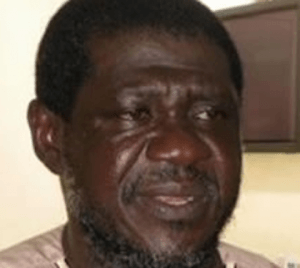Ghana missing out on substitution treatment opportunities for drug addicts

Ghana is missing out on potential opportunities to reform drug users and addicts, from the absence of legal provisions for opioid replacement therapy – a therapy that involves replacing an addict’s drug dependence with a less addictive drug such as methadone or morphine under medical supervision.
Executive Secretary of the Narcotics Control Board (NACOB) Mr Yaw Akrasi-Sarpong, told ghanabusinessnews.com in an interview, that though opioid substitution therapy is a process which in effect is provision of a health service to a drug addict, Ghana’s drug laws are silent on the issue.
He explained that there are two schools of thought on opioid replacement: one believes methadone can be just as addictive as the drug being substituted, but the broader school of thought holds that it is less addictive and can be used in harm reduction, to help drug addicts coming out of problematic heroin use.
“If we don’t have a law for harm reduction, it should be possible to go to court and say that in the constitution, health for all is a right; so that if you start methadone substitution and authorities come and confront you for using opiates without permission, we should be able to go to court and defend you that you are giving health to people, but the law is silent on that,” he said.
At the present, the law does not safeguard medical professionals’ use of opioid replacement as a harm reduction method for drug addiction, and methadone which is also an addictive drug, remains in league with other illegal addictive drugs.
Africa’s common position on drug use meanwhile, is that it is a public health issue which has to be decriminalized. West African leaders have also taken the same position on drug use and some policy reforms are underway to decriminalize drug use and addiction, and to tackle the problem from a public health perspective while ensuring that drug traffickers face the full rigours of the law.
Mr Akrasi-Sarpong said that across the continent, countries such as Senegal and Uganda which produces its own methadone, are making use of opioid substitution to effectively help addicts.
Fortunately, he said Ghana’s drug laws are undergoing review to reflect the common African position on drug use, and the new laws would make provision for harm reduction, of which opioid substitution therapy is a part.
By Emmanuel Odonkor

The article is a beautiful piece, and we need more of such articles to let the public know what is happening globally in the drug policy debate well done.
I will, however, like to make a minor correction to the statement made by Mr. Akrasi Sarpong as quoted in this article.
His statement on decriminalization had to do with policy reforms for people who use drugs and not for drug traffickers. Decriminalization of drugs that he mentioned or talked about had to do with people who consume drugs and not traffickers. Traffickers must face the full force of the law
Decriminalization does not apply to drug barons or traffickers.
Thanks a lot for the correction. It has been done